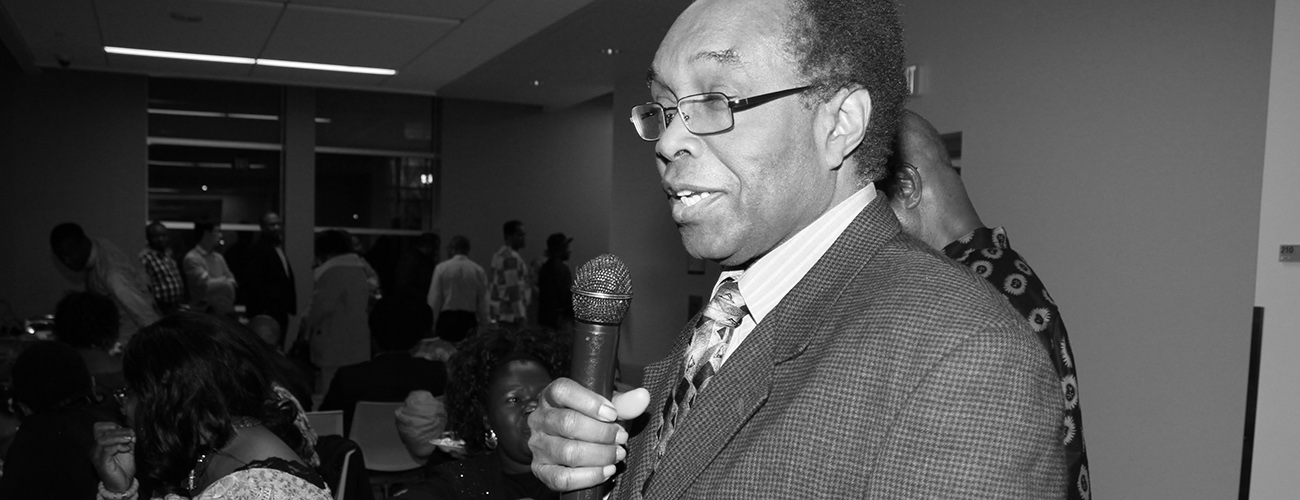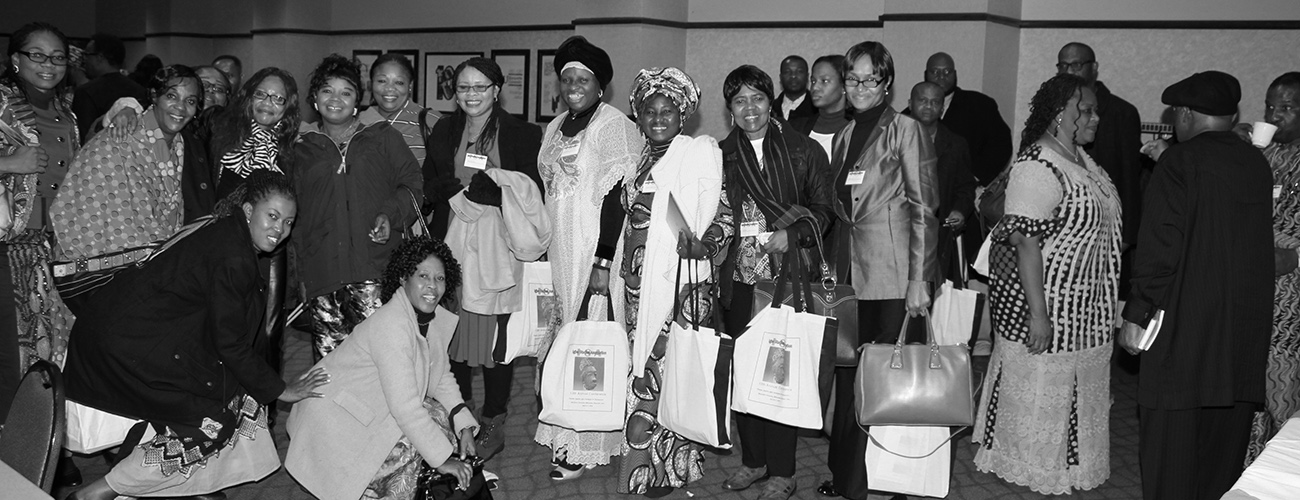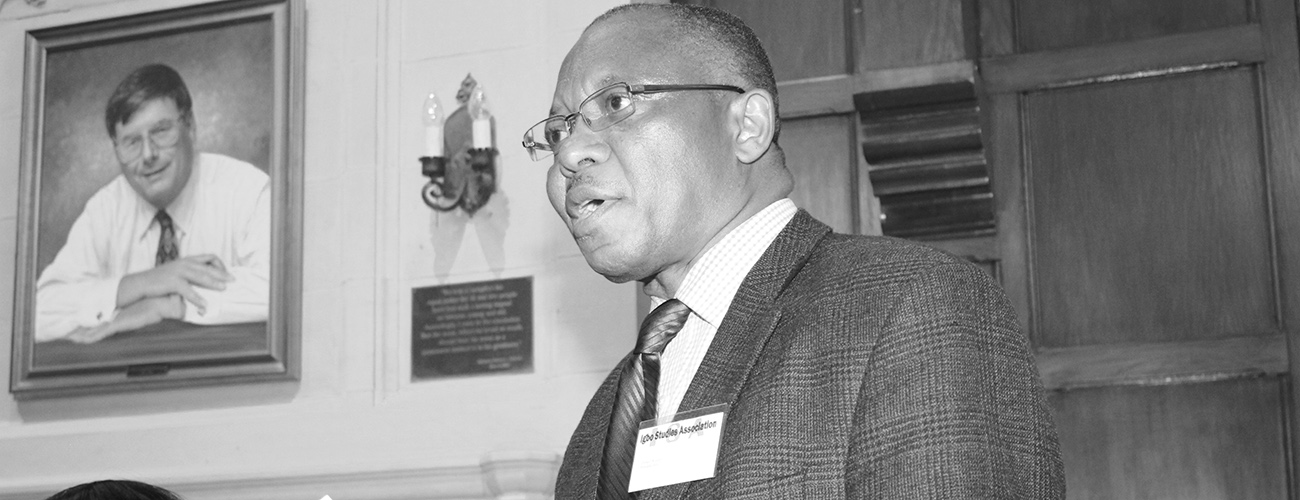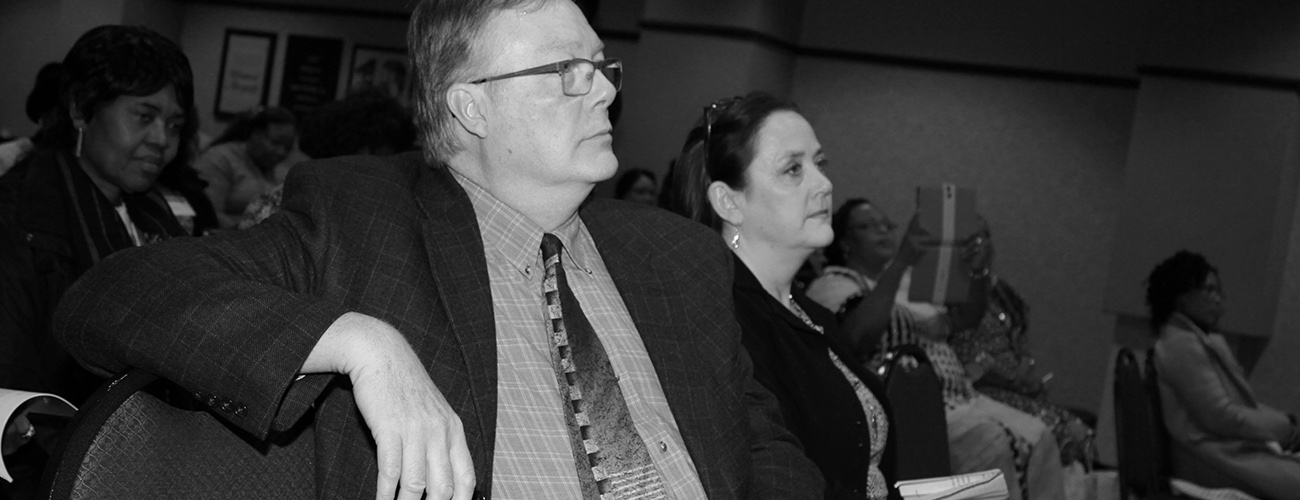NEWS & EVENTS
COMMUNIQUÉ ISSUED BY THE IGBO STUDIES ASSOCIATION (ISA) AT THE END OF ITS 14TH INTERNATIONAL CONFERENCE HELD AT DOMINICAN UNIVERSITY, RIVER FOREST, ILLINOIS, USA, MAY 12-14, 2016
The 14th International Conference of the Igbo Studies Association was held at Dominican University River Forest, Illinois, USA on the theme: Ndi Igbo in the Global Context on May 12-14, 2016. The participants included scholars from over 74 tertiary institutions, leaders of community organizations, independent scholars, clergy/religious, and professionals from the United States, Canada, and Nigeria.
The three-day conference addressed different aspects of the Igbo experience within the context of the conference theme. It also witnessed over 100 paper presentations, four round tables/plenary sessions, a town hall meeting, and a keynote address entitled “The Future of Ndi Igbo: Osondu Agwu Ike” delivered by Professor Thomas Onuoha Chukwujike Ndubizu, Distinguished Professor of Agriculture and Former Deputy Vice-Chancellor (Administration), University of Nigeria, Nsukka, and Vice-Chancellor, Imo State University, Owerri.
The 14th International Conference of the Igbo Studies Association was held at Dominican University River Forest, Illinois, USA on the theme: Ndi Igbo in the Global Context on May 12-14, 2016. The participants included scholars from over 74 tertiary institutions, leaders of community organizations, independent scholars, clergy/religious, and professionals from the United States, Canada, and Nigeria.
The three-day conference addressed different aspects of the Igbo experience within the context of the conference theme. It also witnessed over 100 paper presentations, four round tables/plenary sessions, a town hall meeting, and a keynote address entitled “The Future of Ndi Igbo: Osondu Agwu Ike” delivered by Professor Thomas Onuoha Chukwujike Ndubizu, Distinguished Professor of Agriculture and Former Deputy Vice-Chancellor (Administration), University of Nigeria, Nsukka, and Vice-Chancellor, Imo State University, Owerri.
At the end of its deliberations, and emerging from the discussions by the participants at the various panels and plenary sessions, the Igbo Studies Association:
- Recognized that at no time in recent memory has threat to the lives, wellbeing, and values of the Igbo people been more pronounced than in the recent years.
- Condemned opportunistic hostage-takers who indiscriminately victimize innocent people in Igboland, threaten Igbo cultural values, and undermine the confidence vital in attracting and retaining local and foreign investments.
- Called on families in Igboland to cooperate with various law enforcement agencies by providing information on people with questionable characters in their communities or neighborhood for public good.
- Decried the loss of lives and property of Igbo families, business class, workers, and visitors in northern Nigerian states due to the indiscriminate and bloody attacks directed against non-indigenes by the Boko Haram terrorists; and called on the federal government to see the safety of indigenes and non-indigenes in the north as a high order political business.
- Repudiated the unprovoked and senseless killings of innocent Igbo and other Nigerians by Fulani herdsmen, and strongly demanded that the federal government, including the affected state and local governments, see the protection of lives of people as an overriding governmental duty.
- Acknowledged that without addressing the anger triggered by the recent attacks by Fulani herdsmen, potential retaliatory attacks could only result in uncontrolled ethnic clashes with disastrous implications for national unity.
- Highlighted the contributions and sacrifices of Ndi-Igbo to the social, political, and economic transformation of Nigeria since the country’s independence.
- Resolved that Biafra, whether as a consciousness or political reality, remains an unfinished business, noting that despite the federal government’s declaration of “No Victor, No Vanquished,” the war time experience for the Igbo continues to evoke persistent psychological wounds among the people, especially in the face of perceived marginalization.
- Believed in the rights of Igbo people to demand for greater inclusion in the Nigerian project but condemned the unproductive use of violence in any form or shape in calling attention to the perceived and real marginalization of Igbo people in Nigeria.
- Denounced the disproportionate use of force by local, state, and federal security agencies in dealing with mostly peaceful protests by individuals associated with the Indigenous People of Biafra (IPOB).
- Challenged state governors in eastern Nigeria to be more responsive to the economic and social needs of people living in their states; and through sound policies to better manage the outbursts of youths who, traumatized by crime, unemployment, and economic anxiety, erroneously see the declaration of an independent Biafra as the solution to their worries.
- Acknowledged efforts to understand the war time traumatic experience of Ndi-Igbo by establishing an intellectual movement and Igbo Schools of Thought dedicated to Biafra narrative in contemporary media and scholarship, examples of which include Chimamanda Adichie’s Half of a Yellow Sun, Chinua Achebe’s There was a Country, Girls at War, Buchi Emecheta’s Destination Biafra, Flora Nwapa’s Never Again, and Tony Ubesie’s Isi Akwu Dara N’ala.
- Called on state governments in eastern Nigeria to partner with the federal government in erecting a national memorial site(s) to honor both Nigerian and Biafra soldiers who made invaluable sacrifices in Nigeria’s nation-building project; and to embark on a mission to fully account for many families who lost relatives during the war through death or migration to neighboring countries.
- Affirmed that the tireless struggle for survival by the Igbo nation (Osondu Agwu-ike), should not necessarily be a zero-sum game, noting that the Igbo nation has a lot to contribute to the social, economic and political advancement of Nigeria in particular and the world in general.
The ISA reaffirmed its commitment to:
- Strengthening Igbo language and cultural values.
- Encouraging Nka Na Uzu (science and technology).
- Women empowerment.
- Conflict resolution.
- Igbo entrepreneurship and economic empowerment.
- Human capital development.
The association resolved to hold its 15th Annual Conference in Owerri, Nigeria in 2017 with the theme: Nto-Ala Igbo: Retelling Our Story, Rekindling Our Values.
SIGNED: Conference Planning Committee:
Dr. Ada Azodo, ISA President
Dr. Ogechi E. Anyanwu, Conference Chair
Dr. Uchenna M. Nzewi, Member
Dr. Douglas Chambers, Member
Dr. Apollos Nwauwa, Member
Dr. Chima J. Korieh, Member
Dr. Ralph Njoku, Member
Dr. C.J.B.G. Okpalike, Member
Dr. Nkuzi Nnam, Member
Dr. Kanayo Odeluga, Member




